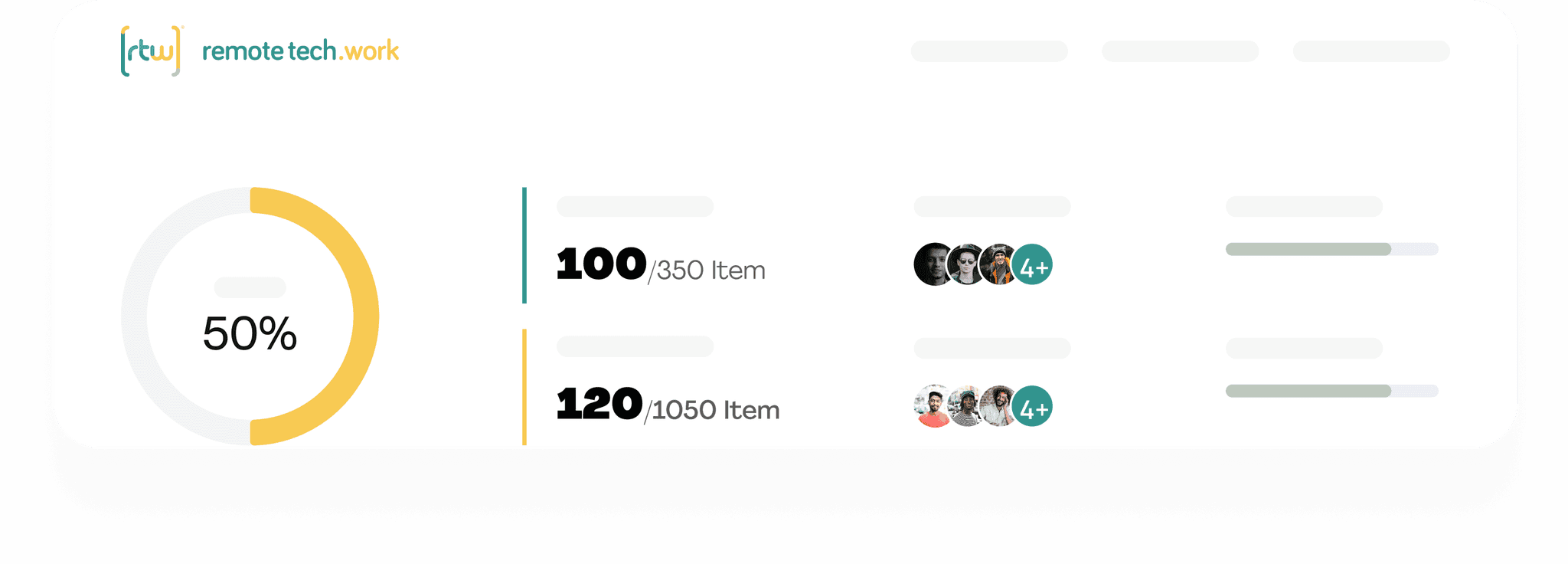DESCRIPTION
DESCRIPTION
DESCRIPTION
React Native is an open-source mobile application development framework created by Facebook that allows developers to build cross-platform mobile apps using a single codebase. It is built on the foundation of React, a popular JavaScript library for building user interfaces, and extends its capabilities to enable the development of native mobile applications for both iOS and Android platforms. React Native leverages the power of JavaScript and React's component-based architecture, allowing developers to write code once and run it on multiple platforms, resulting in significant time and cost savings. This framework provides a high level of code reusability, enabling developers to share a substantial portion of their codebase while still delivering a native-like user experience.
One of the primary benefits of React Native is its ability to create truly native mobile applications, as opposed to hybrid apps that run within a webview. React Native achieves this by rendering user interfaces using native components, providing a level of performance and user experience similar to that of apps developed in platform-specific languages like Swift (for iOS) and Java/Kotlin (for Android). Additionally, React Native's large and active community has led to an extensive ecosystem of open-source libraries, plugins, and developer tools that enhance its functionality and simplify the development process, making it a top choice for businesses and developers seeking efficient cross-platform app development.
React Native is an open-source mobile application development framework created by Facebook that allows developers to build cross-platform mobile apps using a single codebase. It is built on the foundation of React, a popular JavaScript library for building user interfaces, and extends its capabilities to enable the development of native mobile applications for both iOS and Android platforms. React Native leverages the power of JavaScript and React's component-based architecture, allowing developers to write code once and run it on multiple platforms, resulting in significant time and cost savings. This framework provides a high level of code reusability, enabling developers to share a substantial portion of their codebase while still delivering a native-like user experience.
One of the primary benefits of React Native is its ability to create truly native mobile applications, as opposed to hybrid apps that run within a webview. React Native achieves this by rendering user interfaces using native components, providing a level of performance and user experience similar to that of apps developed in platform-specific languages like Swift (for iOS) and Java/Kotlin (for Android). Additionally, React Native's large and active community has led to an extensive ecosystem of open-source libraries, plugins, and developer tools that enhance its functionality and simplify the development process, making it a top choice for businesses and developers seeking efficient cross-platform app development.
Recommended Skills
Recommended Skills
Recommended Skills
A React Native developer should possess a combination of technical and soft skills to excel in mobile app development using the React Native framework. Here's a list of key skills and knowledge areas for a React Native developer:
Proficiency in React Native: A strong understanding of the React Native framework, including its core components, lifecycle methods, and navigation.
JavaScript and ES6: Mastery of JavaScript and ES6 (ECMAScript 2015) features, as React Native is primarily based on JavaScript.
Mobile app development: Familiarity with mobile app development concepts, including user interface design, performance optimization, and platform-specific considerations.
Native modules: Knowledge of creating and using native modules to extend the capabilities of React Native applications with platform-specific code.
Redux: Proficiency in state management using Redux or similar state management libraries to maintain and synchronize app data.
API integration: Ability to integrate RESTful APIs, GraphQL, and other data sources into React Native applications for data retrieval and manipulation.
Mobile platform knowledge: Awareness of platform-specific differences between iOS and Android and the ability to adapt the app's behavior accordingly.
Navigation: Understanding of navigation libraries like React Navigation for creating smooth and intuitive navigation flows within the app.
Testing and debugging: Skills in testing React Native components, as well as debugging and troubleshooting issues using tools like React Native Debugger.
A React Native developer should possess a combination of technical and soft skills to excel in mobile app development using the React Native framework. Here's a list of key skills and knowledge areas for a React Native developer:
Proficiency in React Native: A strong understanding of the React Native framework, including its core components, lifecycle methods, and navigation.
JavaScript and ES6: Mastery of JavaScript and ES6 (ECMAScript 2015) features, as React Native is primarily based on JavaScript.
Mobile app development: Familiarity with mobile app development concepts, including user interface design, performance optimization, and platform-specific considerations.
Native modules: Knowledge of creating and using native modules to extend the capabilities of React Native applications with platform-specific code.
Redux: Proficiency in state management using Redux or similar state management libraries to maintain and synchronize app data.
API integration: Ability to integrate RESTful APIs, GraphQL, and other data sources into React Native applications for data retrieval and manipulation.
Mobile platform knowledge: Awareness of platform-specific differences between iOS and Android and the ability to adapt the app's behavior accordingly.
Navigation: Understanding of navigation libraries like React Navigation for creating smooth and intuitive navigation flows within the app.
Testing and debugging: Skills in testing React Native components, as well as debugging and troubleshooting issues using tools like React Native Debugger.
Our Talent Acquisition Process
Our Talent Acquisition Process
Our Talent Acquisition Process
We will walk you through our process during the days/weeks according to your agenda availability. Feedback will be present whether we move forward or not with your application. There are, in general, a challenge (60’ average each), two calls (45’ average each), and a Tech Interview for you to reach the final Offer Call.
We will walk you through our process during the days/weeks according to your agenda availability. Feedback will be present whether we move forward or not with your application. There are, in general, a challenge (60’ average each), two calls (45’ average each), and a Tech Interview for you to reach the final Offer Call.






HOW TO
GET STARTED
Sign up for our developer platform to begin working remotely
DEVELOPMENT
SOFTWARE
Remote Tech Work Ltd is a company registered in England and Wales (No.16127490).
Our address is Orion House Office 774, Bessemer Road, Welwyn Garden City, AL7 1HH. 2025
Remote Tech Work. All right reserved.
DEVELOPMENT
SOFTWARE
Remote Tech Work Ltd is a company registered in England and Wales (No.16127490).
Our address is Orion House Office 774, Bessemer Road, Welwyn Garden City, AL7 1HH. 2025
Remote Tech Work. All right reserved.
DEVELOPMENT
SOFTWARE
Remote Tech Work Ltd is a company registered in England and Wales (No.16127490).
Our address is Orion House Office 774, Bessemer Road, Welwyn Garden City, AL7 1HH. 2025
Remote Tech Work. All right reserved.
DEVELOPMENT
SOFTWARE
Remote Tech Work Ltd is a company registered in England and Wales (No.16127490).
Our address is Orion House Office 774, Bessemer Road, Welwyn Garden City, AL7 1HH. 2025
Remote Tech Work. All right reserved.
DEVELOPMENT
SOFTWARE
Remote Tech Work Ltd is a company registered in England and Wales (No.16127490).
Our address is Orion House Office 774, Bessemer Road, Welwyn Garden City, AL7 1HH. 2025
Remote Tech Work. All right reserved.

